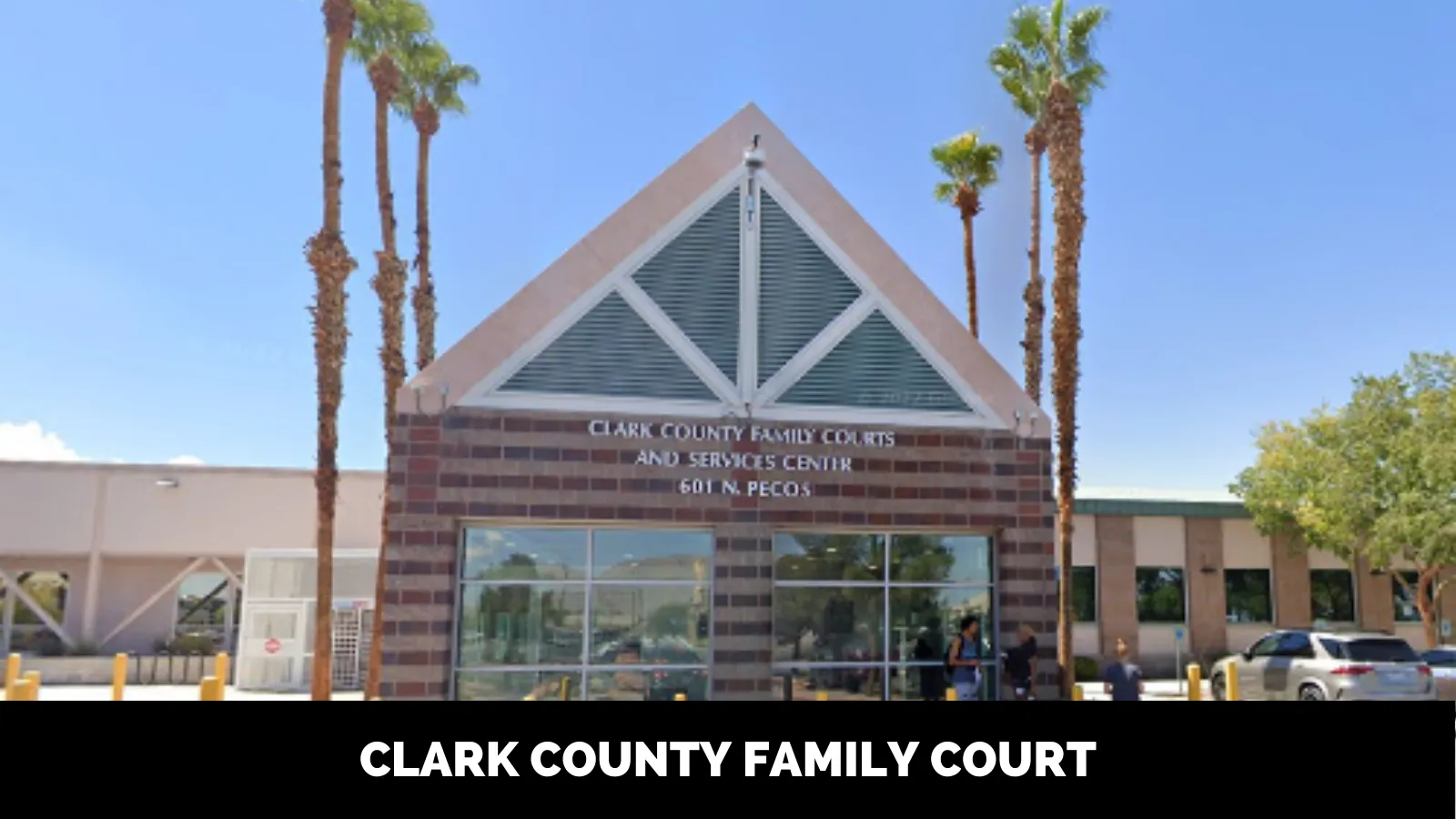Las Vegas Family Court
The Las Vegas Family Court is part of the Eighth Judicial District Court of Nevada. It deals with a wide range of family law matters, including divorce, child custody and support, and domestic violence. The court strives to resolve family disputes in a fair and timely manner while protecting the rights of all parties involved, especially children.
History of Family Court in Las Vegas
Prior to the 1990s, family law matters in Las Vegas were handled by district court judges who also heard criminal and civil cases. However, the growing population of southern Nevada led to an overwhelming family court caseload. In 1991, the Nevada Legislature established a Family Division within the Eighth Judicial District Court. This allowed for specially trained judges to focus exclusively on the complex legal and emotional issues inherent in domestic cases.
Over the past 30+ years, the Las Vegas Family Court has continued to evolve and expand. It has implemented innovative programs like mediation and settlement masters to facilitate quicker case resolutions. The court also works closely with social services agencies and nonprofits to connect families to vital resources.
Locations of District Courts
In Clark County, there are two primary locations where district court matters are addressed:
Family Courts and Services Center
- Address: 601 North Pecos Rd., Las Vegas, Nevada 89155
- Phone: (702) 455-2385
The Family Courts and Services Center is a dedicated facility for handling family-related cases. It provides essential services to those navigating the complexities of family law.
Regional Justice Center
- Address: 200 Lewis Avenue, Las Vegas, Nevada 89155
- Phone: (702) 671-4528
The Regional Justice Center is another significant location for district court proceedings. It houses courtrooms and chambers for various judges.
Judge Locations
Most family court judges can be found at the Family Courts and Services Center. However, some judges conduct their proceedings at the Regional Justice Center. To ensure you’re in the right place for your hearing, it’s essential to know where your assigned judge presides. As of January 2021, cases assigned to Departments B, F, H, T, U, W, and X are heard at the Regional Justice Center.
Child Support Cases
Child support cases have a dedicated location for proceedings:
Child Support Center of Southern Nevada
- Address: 1900 E. Flamingo Road, Las Vegas, Nevada 89109
This center specializes in handling child support cases, ensuring that the welfare of children is a top priority.
Accessing Court Information
For more information about the Eighth Judicial District Court, including operating hours, judges’ profiles, and additional resources, you can visit the court’s website. To look up your district court case, a convenient “Lookup My Case” tool is available on their website.
Las Vegas Family Court Divisions
The Las Vegas Family Court is comprised of different divisions that specialize in certain types of domestic cases:
- Dependency Unit: Child abuse/neglect cases
- Delinquency Unit: Juvenile criminal matters
- Unified Family Court: Divorce, custody, support issues
- Protective Orders Unit: Domestic violence restraining orders
There are currently 29 Family Court judges across the various divisions.
Types of Family Court Cases
The Las Vegas Family Court handles all aspects of family law, including:
- Divorce: Dissolving marriage and allocating assets/debts
- Child Custody: Establishing parenting arrangements
- Child Support: Setting support obligations for minor children
- Spousal Support: Determining alimony for ex-spouses
- Paternity: Establishing legal fatherhood
- Adoption: Finalizing adoptions for stepparents/relatives
- Domestic Violence: Obtaining restraining orders
- Juvenile Matters: Delinquency, truancy, and emancipation
Getting a Divorce in Las Vegas Family Court
Ending a marriage in Las Vegas involves navigating specific divorce laws and court procedures.
Residency Requirements for Divorce
To file for divorce in Nevada, either the petitioner or respondent must have been a resident for at least 6 weeks prior to filing. Members of the military can commence a divorce action immediately if stationed in Nevada.
No Fault vs. Fault Divorce
Like most states, Nevada has “no fault” divorce. This means neither spouse has to prove wrongdoing to end the marriage – irreconcilable differences is enough. However, couples can still pursue a traditional fault divorce on grounds like adultery or abandonment.
Steps in the Divorce Process
Typical steps in a Las Vegas divorce case include:
- Filing the initial divorce petition and serving it on the spouse
- The respondent submitting an answer and counterclaim
- Exchanging financial disclosures and documentation
- Negotiating a marital settlement agreement
- Appearing before a judge for final orders
- Legally finalizing the divorce decree
Contested divorces involving disputes over assets or children involve much more time and litigation.
Divorce Mediation
Many Las Vegas couples turn to mediation for a smoother, less adversarial divorce. Mediators help facilitate cooperation and compromise. Agreements reached in mediation often need court approval.
Child Custody in Las Vegas Family Court
Child custody is one of the most contentious issues for divorcing parents in Las Vegas. The court determines custody based on Nevada laws and the child’s best interests.
Legal vs. Physical Custody
Legal custody involves decision-making authority for a child’s welfare. Physical custody means where the child primarily resides. The court can award joint or sole legal and physical custody in different combinations.
Factors Considered for Custody
Nevada family court judges weigh several factors when allocating custody rights, including:
- Parent-child bond and attachment
- History of caregiving for the child
- Child’s adjustment to home/school/community
- History of substance abuse, violence, or neglect
- Ability to facilitate a relationship with the other parent
Modifying Custody Arrangements
Custody orders can be modified if there are substantial changes affecting the child’s well-being. However, the parent seeking modification bears the burden of proof.
Child Support in Las Vegas Family Court
The Family Court determines child support to ensure children’s financial needs are met after a divorce.
How Child Support is Calculated
Nevada uses an income shares model to calculate child support. The combined parental income is considered, along with the cost of raising children. Deviation from standard support amounts requires justification.
Collecting and Enforcing Child Support
The District Attorney’s Office assists with establishing income withholding orders and taking actions against nonpayment. Remedies include revoking licenses, intercepting refunds, liens, and contempt.
Modifying Child Support Orders
Parents can request reviews to modify support every three years or if there is a substantial change in circumstances, like decreased income or increased expenses.
Domestic Violence and Restraining Orders
The Las Vegas Family Court provides protections for victims of domestic violence through restraining orders.
Obtaining a Restraining Order
To get a temporary protection order, victims must file a request detailing the alleged abuse and their fear of harm. Notices are issued to the alleged perpetrator who can object at the hearing.
Restraining Order Hearings
At the hearing, the judge listens to both sides and reviews evidence to decide whether to issue the permanent order, which can last up to 2 years.
Violating a Restraining Order
It is a crime to violate restraining orders. Punishments range from fines to jail time. Victims should promptly report violations to police.
Tips for Navigating Las Vegas Family Court
Dealing with family court can be intimidating and confusing. Here are some tips for a smoother process:
Hire an Experienced Attorney
Having a knowledgeable family lawyer represent you is highly recommended. They understand the procedures, laws, and best strategies.
Understand the Rules and Procedures
Learn the required forms, documentation, and court etiquette in advance. Ask your lawyer any questions. Review the court website and handouts.
Be Prepared with Documentation
Have certified copies of all relevant documents like birth certificates organized for hearings and trials. Bring a pen and notepad to take notes.
Stay Calm and Professional
Keep emotions in check. Do not argue with the judge or other party. Maintain respectful behaviour despite provocations.
Frequently Asked Questions
What is the difference between Legal Separation and Divorce in Nevada?
Legal separation leaves the marriage legally intact while divorce dissolves the marriage. Spouses can live apart and address custody, support and property in a separation.
How does the court calculate alimony in Nevada divorces?
Alimony is based on the length of marriage and the receiving spouse’s financial need. It is typically capped after a moderate-length marriage absent extenuating circumstances.
Can I represent myself in a divorce or custody case in Las Vegas? You can represent yourself but it is not advisable in contested cases. Knowledge of laws and court procedures is required.
What happens if we can’t agree on a parenting plan for our children? If you cannot agree, each parent can submit a proposed parenting plan and the judge will issue a final custody order after a hearing.
Can Domestic Partners file for divorce in Nevada Family Court? Yes, the court treats domestic partners the same as married spouses for determining child custody, support and asset division.








